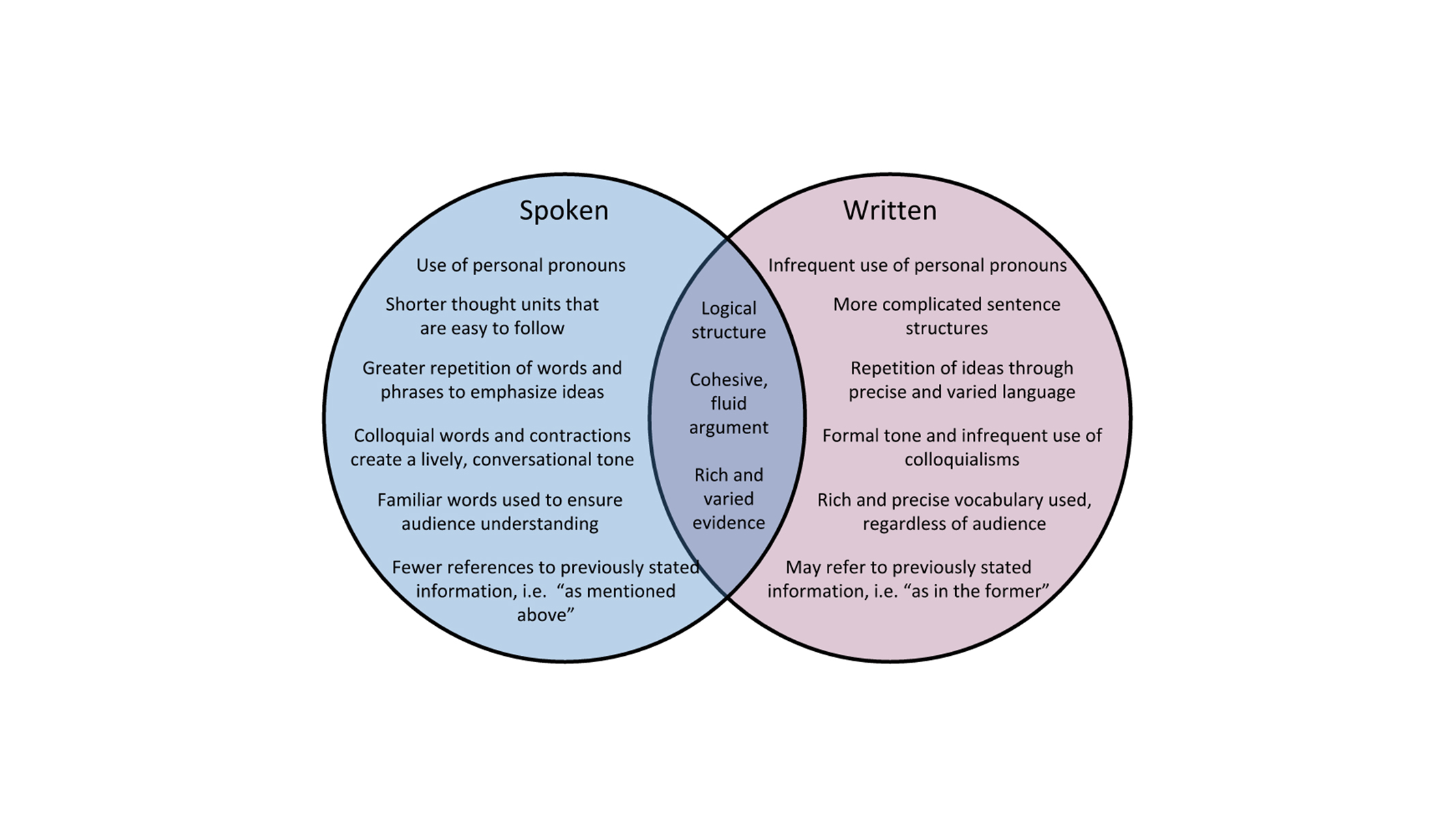
Imagine living in a world without spoken and written language. Doesn’t that sound strange? The places where people come together and talk about lively community events are silent and spooky caves. We rely heavily on verbal and non-verbal communication to convey information. This is the reason that we have thousands of languages around the world. There are more than 8,000 languages in the world and more languages are in development. it is an endless cycle.
Along with hundreds of thousands of businesses and other transactions happening around the world every day, there is so much need of translation. In this article, we will focus on the main differences between spoken and written language. But before going into differences let us throw some light on the history of languages. It will help in understanding the importance of spoken and written language.
The History of the Language of the World:
So do you know, what was the first spoken and written language? Discovering the first language spoke by the people is difficult to predict. Because many languages died and were thought to be lost. However, some ancient languages survive to this day. These languages may have changed a little, but their origins are understandable. If we talk about written languages, they existed up to Sumerian and Egyptian civilizations.
But this does not indicate how long people spoke these recorded languages. In fact, regarding other written languages. China and Greek are world most ancient countries. According to them, these languages were used as early as 1500 BC. In addition to the written languages, there are spoken languages that have stood the test of time.
Spoken Language:
Spoken language not any rocket science. It is just the language we speak. It’s often spontaneous and temporary. Spoken language is used for interactions. The two speakers, or the listener and speaker, are usually in the same place so that they can correct any mistakes and change their language. If we exclude the written speeches, spoken language is usually full of incomplete sentences. Spoken is not like written language. In spoken there may be repetitions, interruptions and corrections. Speakers also use gestures, pitch, volume, etc. to create additional meaning in the spoken language.
Written Language:
Written language is the language in which we write. The two most important language skills in the written language are reading and writing. The written language is not ephemeral like the spoken language. It tends to be permanent because when you write something it stays there depending upon the material you used. Unlike spoken language which vanishes away as you speak. Written language is usually more customized and complicated than spoken language.
It contains longer sentences at complex times. However, there are some sorts of instant and informal letters that are closer to spoken language. Written language can have features such as punctuation, headings, designs, colours, etc. to make it more attractive and easier to read. Feedback should be very clear and unambiguous.
It is now necessary to have translational apps in our gadgets to work smoothly in daily work. From courthouses to offices, official translation services deliver translations that are more precise than technical jargon and free of grammatical errors that alter the meaning of the message. Once you have written something, it is not easy to change it. Another interesting aspect of the written language is that the reader and author usually communicate through time and space, as opposed to spoken language.
Major Differences Between Spoken And Written Language:
Let us discuss some major differences between spoken and written language. These two terms are often mistaken. Follow the differences so that you can avoid unnecessary precautions. Below are some generalizations from which there are a few exceptions.
Permanence:
According to a dissertation help firm, written language is solid and it is easy to get the reading done anytime with the speed and level of detail desired by the individual reader. Contrast spoken text is fleeting and runs in real time. -Although there is an occasional interruption to ask for clarification, in general what has been said should be followed at the speed set by the speaker.
Explicit:
The written text is explicit; It’s important to make the reference and context clear. In spoken language, the knowledge or information that is shared between the speaker and listener is accepted. It doesn’t need to get explicit.
Density:
Contents are presented more deeply in writing. In language, information is “diluted” and transmitted via different other words: There are many repetitions, glosses, “fillers”, which results in a much longer and more redundant text.
Separation:
Writing a text is separated in time and in the reading room; The writer usually works alone and may not be familiar with his readers. Speaking usually takes place in face-to-face interaction with known listeners, with immediate feedback.
Organization:
The organization of written text makes it more focused because the author has the time and opportunity to edit it before it is given for a final read. A speaker improvises while speaking: continuous changes in the form of glosses, self-corrections, etc. seemingly disorganized “stream of consciousness” speech. Thus, the vocabulary of a written text is more accurate and it follows more rules of grammar as compared to spoken language.
Production Slowness, Reception Speed:
Writing is much slower than speaking, on the other hand we can usually read and understand a text much faster than we can record the same text if we listen to someone reading us aloud.
Standard Language:
A generally acceptable standard language is usually used in writing, while the language may sometimes be in a regional or another restricted context dialect. In some languages (e.g. Chinese) the different spoken dialects can even be mutually incomprehensible, while the written language is universally understood.
A Learned Skill:
Most people acquire the spoken language (at least their own mother tongue) intuitively, while the written form is usually taught and learned consciously.
Total Quantity and Meaning:
Spoken text is usually much longer (in the sense that it contains more words) than a written representation of the same information. that most people talk a lot more than they write. Linked to this is a third point: speaking is more important for survival and effective functioning in society than writing.’
Conclusion:
Spoken and written language, both are important and we need both in our day to day life. In order to be a fluent speaker and writer, there are a few aspects that you need to focused on.






